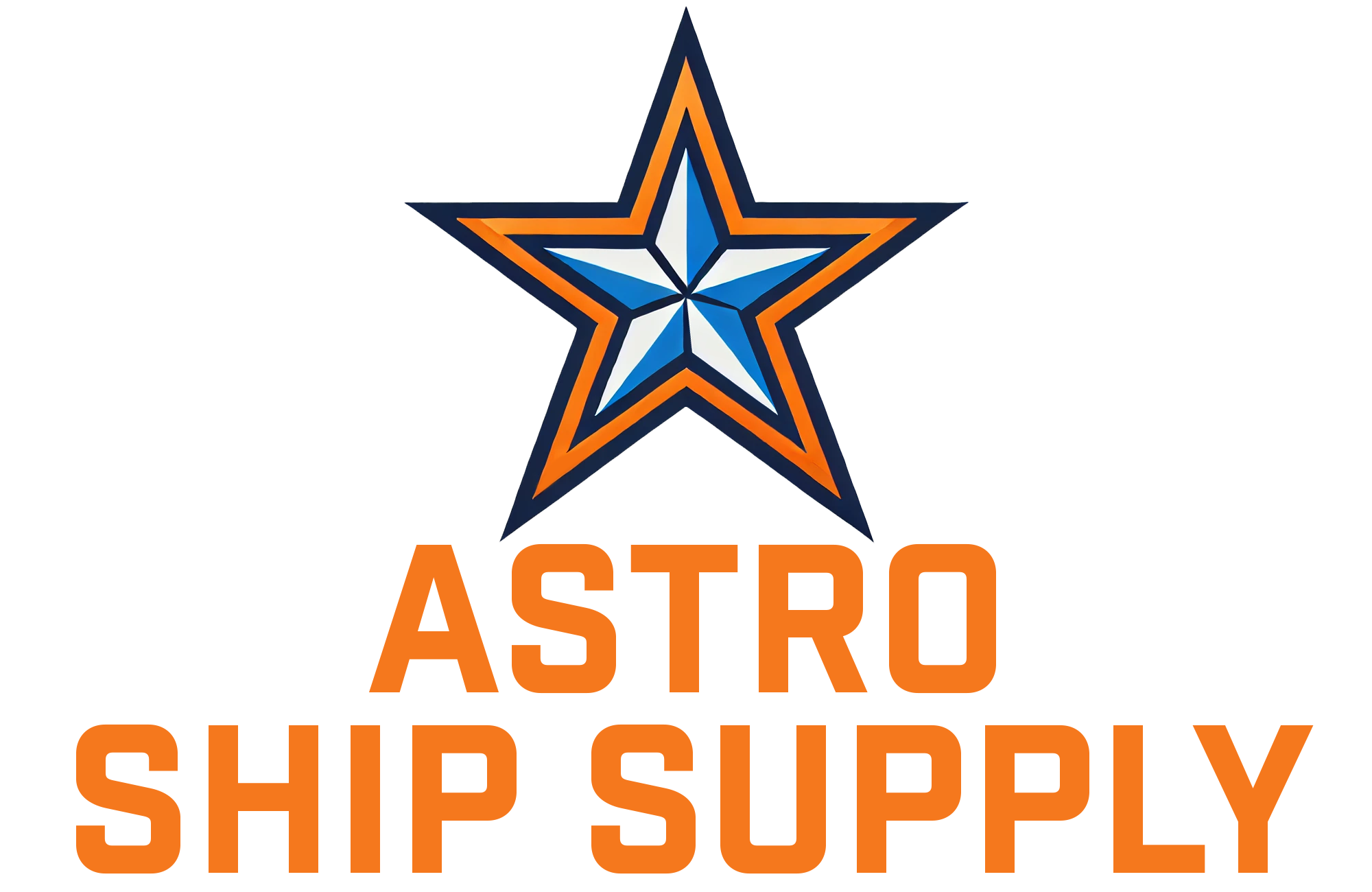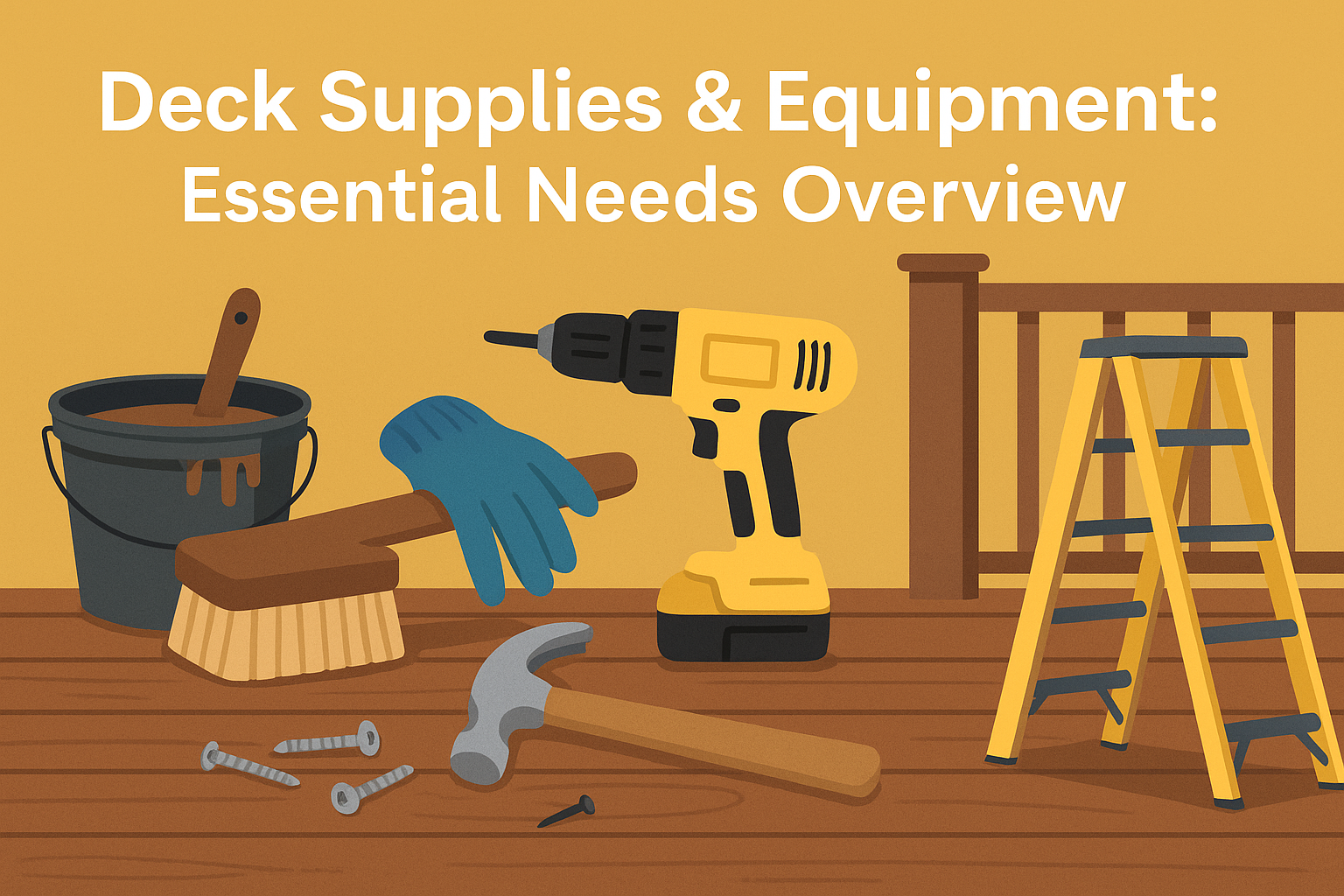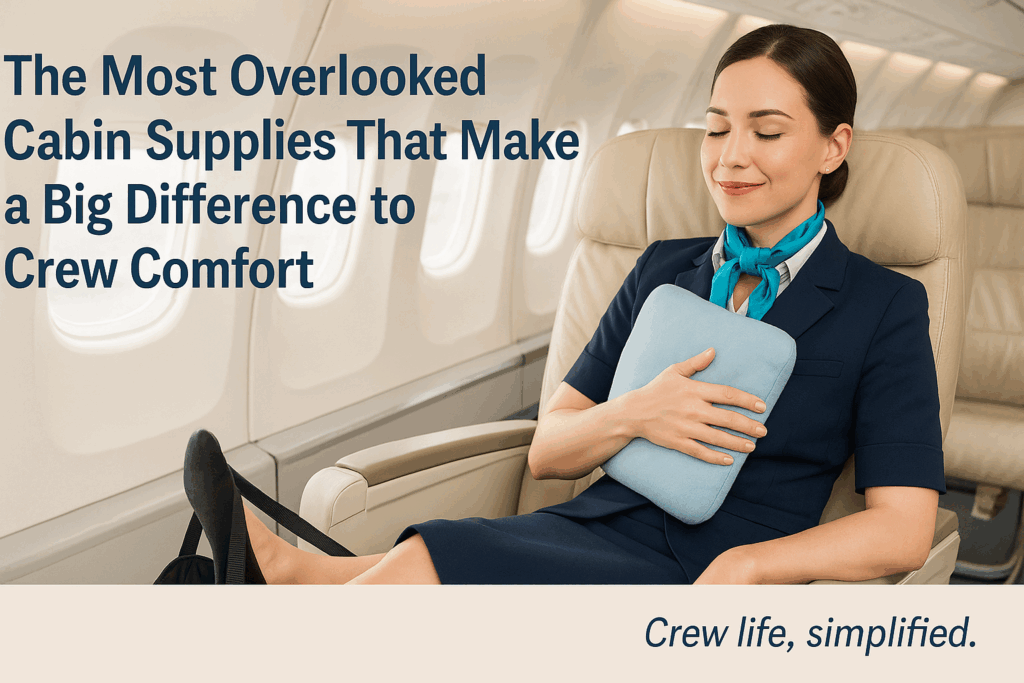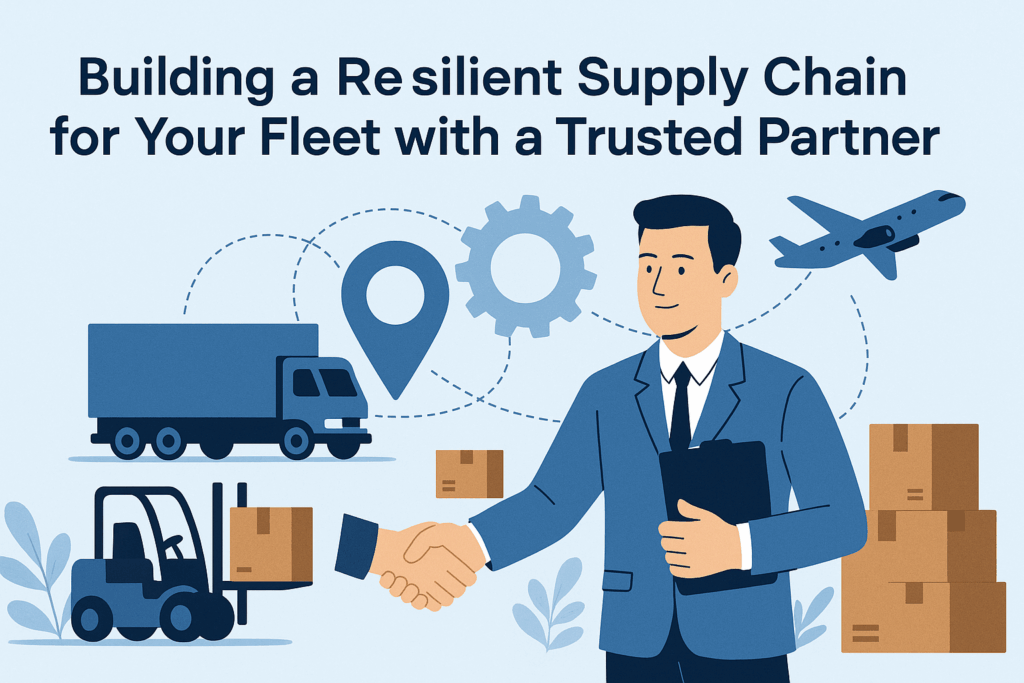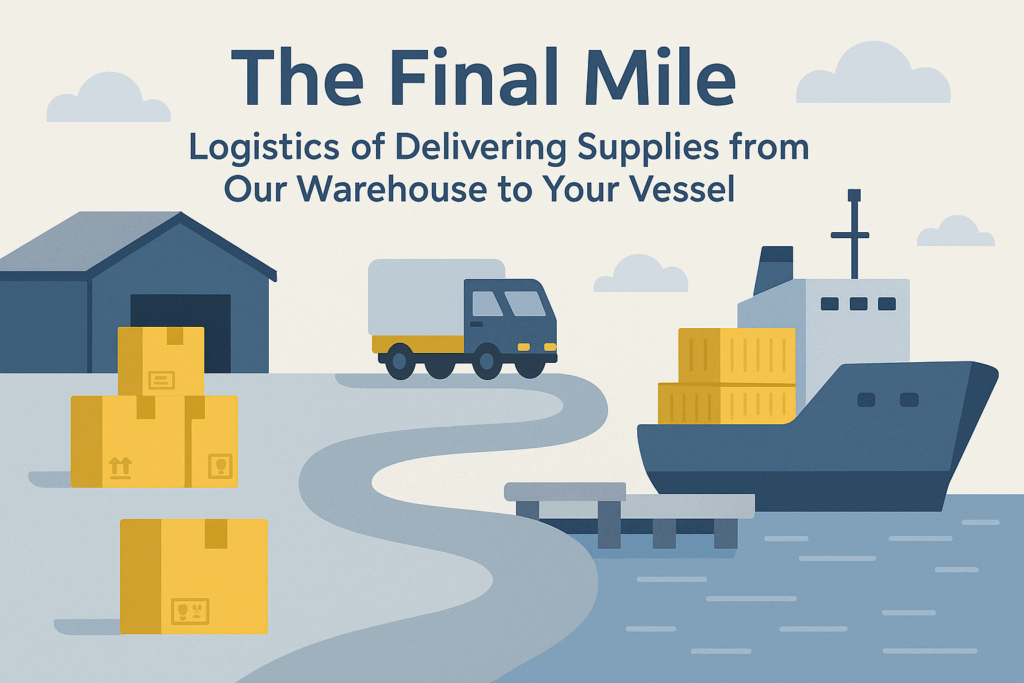The Operational Heartbeat: Why Prioritizing Deck Supplies is Non-Negotiable
The deck of any vessel, whether a colossal container ship, a hardworking bulk carrier, or a nimble offshore support vessel, is its primary stage of operation. It’s where cargo meets the ship, where mooring lines secure its safety, and where the crew interacts most directly with the elements and the mission at hand. Consequently, the quality, availability, and suitability of deck supplies and equipment are not mere inventory items; they are fundamental pillars supporting operational efficiency, crew safety, cargo integrity, and regulatory compliance. Neglecting this critical area can lead to costly delays, dangerous working conditions, damaged cargo, and significant financial and legal repercussions.
In the demanding maritime environment, characterized by harsh weather, saltwater corrosion, and heavy-duty use, only robust and reliable equipment will suffice. Choosing the right supplies isn’t just about ticking boxes; it’s about investing in the vessel’s resilience and the crew’s well-being. From the unforgiving forces encountered during mooring in heavy seas to the precise requirements of securing valuable cargo, every piece of deck gear plays a vital role. This comprehensive overview delves into the essential needs, quality considerations, and strategic importance of maintaining a well-stocked and appropriately equipped deck.
Navigating the Essentials: Core Categories of Deck Equipment
Deck supplies encompass a vast array of items. Understanding the core categories helps in systematic procurement and maintenance planning, ensuring all critical operational needs are met.
H3: Mooring Operations: Securing Your Lifeline in Port and at Sea
Mooring is arguably one of the most critical and potentially hazardous operations onboard. The equipment used must withstand immense forces and environmental stress. Essential mooring supplies include:
- Mooring Ropes & Wires: The backbone of securing the vessel. Material choice is crucial, impacting strength, elasticity, durability, and handling. Common types include Polypropylene (PP), Polyester, Nylon, and High Modulus Polyethylene (HMPE).
- Anchors & Anchor Chains: Fundamental for holding position, especially in anchorages or emergencies. Regular inspection for wear and tear is vital.
- Winches & Windlasses: Provide the mechanical power for handling heavy ropes, wires, and anchor chains. Maintenance is key to operational readiness.
- Fairleads, Chocks & Bitts: Guide ropes and wires, minimizing chafe and ensuring secure fastening points. Their condition directly impacts rope longevity and safety.
- Heaving Lines & Messengers: Used to pass heavier mooring lines ashore or to tugs.
Comparative Analysis: Mooring Rope Materials
Choosing the right rope involves balancing cost, performance, and specific operational needs. Here’s a brief comparison:
| Material | Pros | Cons | Common Uses |
|---|---|---|---|
| Polypropylene (PP) | Floats, lightweight, cost-effective | Lower breaking strength, susceptible to UV degradation | General purpose mooring, towing lines |
| Polyester | High strength, good abrasion & UV resistance, low stretch | Sinks, heavier than PP | Permanent mooring, anchor lines, towing |
| Nylon | Very high strength, excellent elasticity (shock absorption) | Loses strength when wet, sinks, higher cost | Anchor lines, towing (where shock absorption is needed) |
| HMPE (e.g., Dyneema®) | Extremely high strength-to-weight ratio, floats, excellent abrasion & UV resistance, low stretch | Very high cost, can be slippery | High-performance mooring, towing, tug lines |
Long-tail consideration: When selecting “high-performance mooring ropes for large tankers,” factors like HMPE’s strength and ease of handling become paramount despite the cost.
H3: Cargo Handling & Lashing: Protecting Your Payload, Protecting Your Reputation
Ensuring cargo is safely loaded, stowed, and secured is crucial not only for the cargo owner but also for the safety of the vessel and crew. Improperly secured cargo can shift, causing damage, stability issues, and potential loss overboard.
- Lashing Materials: Wires, chains, webbing straps, turnbuckles, shackles, and specialised fittings designed to hold cargo firmly in place, compliant with standards like the IMO’s Code of Safe Practice for Cargo Stowage and Securing (CSS Code).
- Dunnage: Materials (usually wood or inflatable bags) used to cushion cargo, prevent movement, and allow for drainage.
- Lifting Gear: Slings, hooks, spreader bars, and other equipment used with cranes for loading and unloading (though often port-provided, ships may carry some). Certification and regular inspection are mandatory.
- Hatch Cover Spares: Including seals, cleats, and hydraulic components to ensure weather-tight integrity for cargo holds.
Case Scenario: Securing Project Cargo
Imagine loading oversized, high-value machinery onto a multi-purpose vessel. Standard container lashing won’t suffice. Success hinges on having the right heavy-duty chains, high-capacity turnbuckles, stoppers, and sufficient dunnage, all correctly calculated and applied according to the Cargo Securing Manual. Using substandard or insufficient gear here could lead to millions in damages and severe reputational harm. This highlights the need for a supplier like Astro Ship Supply who understands diverse cargo needs.
H3: Safety First: SOLAS Compliance and Beyond
Safety equipment is non-negotiable and heavily regulated, primarily under the International Convention for the Safety of Life at Sea (SOLAS). Key deck-related safety items include:
- Life-Saving Appliances (LSA): Lifebuoys (with lights and lines), lifejackets, immersion suits, thermal protective aids, liferafts, rescue boats, EPIRBs (Emergency Position-Indicating Radio Beacons), SARTs (Search and Rescue Transponders).
- Firefighting Equipment (FFE): Fire hoses, nozzles, international shore connections, fire extinguishers (appropriate types for different fire classes), fireman’s outfits, breathing apparatus.
- Pilot Access Equipment: Pilot ladders, accommodation ladders, and their associated winches and fittings must be impeccably maintained and compliant for safe pilot transfers.
- Navigation Safety: Signal flags, shapes, sound signalling devices (whistle, bell, gong), navigation lights and spare bulbs.
- Anti-Piracy Equipment (where applicable): Items like razor wire may be needed depending on the trading route.
Regulatory Focus: Failure to maintain SOLAS equipment can lead to vessel detention by Port State Control. Partnering with a knowledgeable chandler ensures you receive compliant and certified safety gear.
H4: Maintenance & General Deck Stores: The Unseen Essentials
Often overlooked but critical for the vessel’s upkeep and the crew’s ability to perform tasks safely and efficiently:
- Paints, Coatings & Anti-Corrosion Tools: Brushes, rollers, chipping hammers, scrapers, primers, topcoats to combat rust and maintain structural integrity.
- Cleaning Supplies: High-pressure cleaners, hoses, nozzles, mops, buckets, environmentally friendly detergents.
- Hand Tools & Consumables: Spanners, wrenches, hammers, ropes, wires, tapes, rags, fasteners.
- Spill Control Equipment: Oil spill kits (absorbents, booms) compliant with MARPOL regulations.
- Deck Lighting: Ensuring adequate illumination for safe working during hours of darkness.
Quality vs. Cost: A Critical Balancing Act in Deck Supply Procurement
The temptation to opt for lower-cost deck supplies can be strong, especially under tight budgets. However, this often proves to be a false economy. Inferior quality equipment can lead to:
- Increased Safety Risks: A failing mooring rope or lashing chain can have catastrophic consequences.
- Frequent Replacements: Lower durability means buying the same items more often, increasing long-term costs.
- Operational Downtime: Equipment failure can cause delays in port or necessitate diversions.
- Reputational Damage: Incidents caused by faulty gear can severely harm a company’s standing.
Investing in high-quality, certified equipment from a reputable supplier ensures reliability, longevity, and compliance. Look for suppliers adhering to quality management systems like ISO 9001:2015, a standard Astro Ship Supply proudly meets. This demonstrates a commitment to consistent quality and customer satisfaction.
Comparative Analysis: Premium vs. Budget Mooring Rope
Consider a standard polyester mooring rope. A premium version might cost 30% more than a budget alternative. However, the premium rope likely offers better UV stabilization, superior abrasion resistance, and more consistent manufacturing quality control. This could translate to a 50-100% longer service life and, more importantly, a significantly higher safety margin, especially under stress or after prolonged use. The ‘savings’ from the budget rope evaporate quickly when factoring in replacement frequency and, critically, the potential cost of failure.
Real-World Scenarios: Where Quality Deck Equipment Makes the Difference
Abstract benefits become concrete when viewed through real-world situations:
- Case Study 1: Heavy Weather Mooring Success: A vessel equipped with high-strength HMPE mooring lines successfully holds position during an unexpected squall in port, preventing collision damage. The slightly higher initial investment paid dividends in averted disaster.
- Case Study 2: Preventing Cargo Shift: A container ship experiences severe rolling in the Pacific. Thanks to correctly rated, certified lashing bars and turnbuckles supplied by a trusted chandler, all containers remain secure, preventing millions in potential cargo claims and maintaining schedule integrity.
- Case Study 3: Swift Emergency Response: A man overboard situation occurs. A SOLAS-compliant lifebuoy with a self-activating light, readily accessible and in good working order, is deployed immediately, significantly aiding swift recovery efforts. Functional, reliable safety gear saves lives.
Partnering for Preparedness: Choosing Your Ship Chandler for Deck Supplies
Your choice of ship chandler significantly impacts your vessel’s readiness and operational smoothness. Beyond just price, consider these factors when sourcing deck supplies:
- Reliability & Timeliness: Can they deliver the right supplies, on time, every time? Look for 24/7 availability, like Astro Ship Supply’s commitment.
- Range & Expertise: Do they stock a comprehensive range of deck equipment and possess the knowledge to advise on suitability and compliance?
- Quality Assurance: Do they have robust quality control processes (e.g., ISO 9001 certified)? Can they provide necessary certifications (SOLAS, class approvals)?
- Compliance Knowledge: Are they familiar with international regulations (SOLAS, MARPOL, ISPS) and U.S. requirements (CBP)?
- Strong Supply Network: Ensures access to quality products even for specialised items. Check their presence in key locations like the Port of Houston and Gulf Coast region.
- Comprehensive Service: Can they bundle deck supplies with other needs like provisions, cabin stores, or bonded goods for streamlined procurement?
A strategic partnership with a dependable chandler acts as an extension of your own procurement and technical teams, ensuring your vessel is always prepared. You can explore more about our approach on our About Us page.
Quotable Takeaways: Deck Supply Essentials Checklist
Keep these key principles in mind for effective deck supply management:
- Safety First, Always: Never compromise on the quality or maintenance of safety and mooring equipment.
- Quality is an Investment: Durable, compliant gear reduces long-term costs and enhances operational reliability.
- Compliance is Non-Negotiable: Ensure all relevant equipment meets SOLAS, MARPOL, and other mandatory standards.
- Maintenance Extends Life & Safety: Implement rigorous inspection and maintenance schedules for all deck gear.
- Know Your Needs: Understand the specific requirements of your vessel type, cargo, and trading routes.
- Choose Partners Wisely: Select a ship chandler focused on quality, reliability, and comprehensive service. Visit our blog for more insights.
Frequently Asked Questions (FAQ) about Deck Supplies
What are the most critical deck supplies for any vessel?
While all deck supplies serve a purpose, the most critical generally fall into two categories: Mooring Equipment (ropes, wires, anchors, winches) essential for securing the vessel safely, and Life-Saving Appliances (LSA) mandated by SOLAS (lifebuoys, lifejackets, liferafts, EPIRBs) vital for crew survival in emergencies.
How often should mooring ropes be inspected?
Mooring ropes require regular visual inspection before each use, looking for signs of abrasion, cuts, fused fibers (from friction), or chemical damage. Detailed inspections should occur periodically according to the vessel’s planned maintenance system and manufacturer recommendations, typically at least annually. Records of inspections and retirement criteria (based on wear or age) are crucial.
What are the key SOLAS requirements for deck safety equipment?
SOLAS mandates specific quantities, types, placement, and maintenance standards for LSA (life-saving) and FFE (fire-fighting) equipment based on vessel size, type, and number of crew. Key requirements include having certified and regularly serviced lifejackets for everyone onboard plus spares, strategically placed lifebuoys, sufficient liferaft capacity, functional EPIRBs/SARTs, maintained fire hoses/nozzles/extinguishers, and proper pilot transfer arrangements. All equipment must be clearly marked and readily accessible.
Why is using certified cargo lashing equipment so important?
Certified cargo lashing equipment (e.g., meeting CSS Code standards) guarantees that the materials have a known and tested Minimum Breaking Load (MBL) or Safe Working Load (SWL). Using uncertified or substandard gear means the actual strength is unknown, creating a high risk of failure under the dynamic forces experienced at sea. This can lead to cargo shift, damage to cargo and vessel, environmental pollution, and severe safety hazards for the crew.
How can a reliable ship chandler help manage deck supply needs effectively?
A reliable ship chandler, like Astro Ship Supply, acts as a procurement partner. They offer expertise in identifying the right equipment for specific needs, ensuring compliance with regulations (SOLAS, ISO), managing quality control, providing necessary certifications, and ensuring timely delivery to minimize vessel delays. Their broad network allows access to a wide range of standard and specialised items, streamlining the entire supply process from requesting a quote to final delivery.
Ready to Ensure Your Deck is Equipped for Excellence?
Maintaining a well-supplied and compliant deck is fundamental to successful maritime operations. Don’t leave safety, efficiency, or compliance to chance. Partner with a ship chandler who understands the critical nature of deck supplies and is committed to quality and reliability.
At Astro Ship Supply, we provide comprehensive deck equipment solutions, alongside provisions, cabin, and bonded stores, tailored to your vessel’s specific requirements in the Port of Houston and across the Gulf Coast. Our commitment to ISO 9001:2015 quality standards and 24/7 service ensures you receive dependable support whenever you need it.
Equip your vessel for success. Request a quote today or contact us to discuss your specific deck supply needs.
